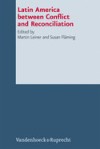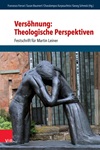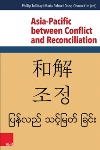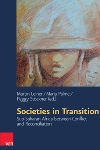| Buchhandlung Heesen | Versandbuchhandlung für Evangelische Theologie |
Impressum | |
| Freudenstadt / Loßburg | Datenschutzhinweise | ||
| Tel. 07446 952 418 1 | Buchhandlung.Heesen@t-online.de | ||
| Da unsere Angebote manuell erstellt werden und während des Seitenaufrufes keine Verbindung zu einer Buchdatenbank aufgebaut wird prüfen wir die Verkaufspreise bei Rechnungsstellung auf Richtigkeit und berechnen den gesetzlich festgelegten Buchpreis. Falls sich dadurch eine Preiserhöhung ergibt werden wir Sie vor Versand informieren, Sie können dann diesem Preis zustimmen oder vom Kauf zurücktreten. Hinweise zum Datenschutz und Cookies | |||
|
Research in Peace and Reconciliation RIPAR |
|
 |
The series »Research in Peace and Reconciliation« (RIPAR) provides a unique overview of the world-wide research on peace and reconciliation. The volumes follow a transdisciplinary perspective, linking Political Science, Psychology, History, Sociology, Law, Religious Studies, Theology, Economics and Cultural Anthropology with each other. The origins of the concept of reconciliation in the Bible are treated as well as the experiences from the commissions of Truth and Reconciliation around the globe, Muslim concepts of peace as well as the Social Psychology of intergroup reconciliation. Authors are internationally renowned, but also innovative younger researchers from many countries. All publications will be in English. |
| Die Reihe »Research in Peace and Reconciliation« (RIPAR) gibt einen bislang einzigartigen Überblick über die weltweiten Forschungen zu Frieden und Versöhnung. Die Publikationen folgen einer transdisziplinären Perspektive, die Politikwissenschaften, Psychologie, Geschichte, Soziologie, Recht, Religionswissenschaften, Theologie, Wirtschaftswissenschaften und Kulturanthropologie miteinander verknüpft. Die Ursprünge des Versöhnungsbegriffs in der Bibel thematisiert die Reihe ebenso wie Erfahrungen aus den weltweiten Wahrheits- und Versöhnungskommissionen, islamische Friedensvorstellungen und die Sozialpsychologie der Versöhnung zwischen Gruppen. Die Autoren sind international renommierte, aber auch innovative jüngere Wissenschaftler aus zahlreichen Ländern. Alle Texte werden auf Englisch vorgelegt. | |
 |
Francesco Ferrari Versöhnung: Theologische Perspektiven Vandenhoeck & Ruprecht, 2023, 293 Seiten, 1 figure and 5 tables, Hardcover, 978-3-525-50028-6 110,00 EUR |
Research in Peace and Reconciliation RIPAR
Volume 8 Festschrift für Martin Leiner Martin Leiner hat die Versöhnungsforschung und -praxis in den vergangenen Jahren maßgeblich geprägt und gefördert. Als Gründer und Leiter des 2013 ins Leben gerufenen Jena Center for Reconciliation Studies/Zentrum für Versöhnungsforschung (JCRS) an der Theologischen Fakultät der Friedrich-Schiller-Universität Jena ist er ein unermüdlicher Brückenbauer und Netzwerker über die universitären Grenzen hinaus. Gerade die Schwerpunkte der vergleichenden Konflikterforschung und der Untersuchung von Versöhnungsprozessen weltweit verleihen dem Jenaer Forschungszentrum eine Sonderstellung, die sowohl durch zahlreiche akademische Impulse (Theoriebildung und praxisnahe Fallstudien) als auch durch den Einbezug internationaler Doktoranden und Gastdozenten unterstrichen wird. Die vorliegende Festschrift feiert nicht nur den 60. Geburtstag Martin Leiners, sondern versammelt auch die Beiträge von Theologen, Philosophen, Religionspädagogen und -wissenschaftlern sowie Versöhnungstheoretikern und -praktikern, die in einem transdisziplinären Dialog dem Thema der Versöhnung aus theologischer Perspektive nachgehen und dadurch die vielfältige Tätigkeit des Jubilars verdeutlichen und wiederspiegeln. Die Beiträge reichen von einem Erfahrungsbericht aus der Friedensarbeit über Themen wie religionspädagogische Erziehung zur Versöhnung, das Verständnis von Vergeben in Hannah Arendts politischer Theorie, die Sündevergebung in jüdisch-christlicher Tradition sowie die Untersuchung der erkenntnistheoretischen Toleranz als Grundlage heutiger Ökumene bis hin zur Untersuchung wertschätzender Wahrnehmung, Selbstliebe und politischer, philosophischer sowie theologischer Wertediskurse. Damit bietet der Sammelband zugleich einen Überblick über aktuelle Herausforderungen und Chancen der Versöhnungsforschung. Leseprobe |
 |
Phillip Tolliday Asia-Pacific between Conflict and Reconciliation Vandenhoeck & Ruprecht, 2016, 293 Seiten, 1 figure and 5 tables, Hardcover, 978-3-525-56025-9 120,00 EUR |
Research in Peace and Reconciliation RIPAR
Volume 3 This third volume in the RIPAR series seeks to translate the Western concept of reconciliation into a universal and thus non-Western idiom. It unmasks some of the long-held and unresolved injustices in Australasia and the Asian-Pacific region. The volume focuses on promising examples of reconciliation processes and practices. These include comparative case study analyses e.g. from Cambodia, Myanmar, Sri Lanka, Korea, Indonesia, China, Japan and from New Zealand and Australia as well as the U.S. and Germany. The contributions demonstrate the potential of translating reconciliation into a non-Western idiom. Written by highly reputed experts from related research fields, the articles demonstrate how the past still exercises a pervasive influence over the present, and also point out the ways in which reconciliation may serve as a transformative tool in war and post-war societies as they make the transition to a renewed collective identity. A perennial challenge is to ensure that a tragic past does not determine the future. Asia, so often seen from a Eurocentric perspective as exotic, other and different, is now manifestly an economic and political powerhouse – shaped by the West, it is now playing its part in shaping the West. Asia’s destiny, its aspirations for just dealings among its neighbors, for the unmasking and resolution of long-held historical injustices from the past, for its sometimes tentative groping toward practices of reconciliation rather than conflict: all these efforts have consequences not just for the Asian nations but for the entire international community. content and preview |
 |
Martin Leiner Societies in Transition Sub-Saharan Africa between Conflict and Reconciliation Vandenhoeck & Ruprecht, 2014, 242 Seiten, 1 map and 6 tables, Hardcover, 978-3-525-56018-1 120,00 EUR |
Research in Peace and Reconciliation RIPAR
Volume 2 The second volume of the trans-disciplinary series “Research in Peace and Reconciliation” looks at ways of dealing with the past in Sub-Saharan Africa in recent decades and highlights the variety of peaceful strategies and processes. It asks to what extent this variety fosters the development of alternative methods for the transformation of violent conflict. The contributions focus on different African countries and regions as Chad, Nigeria, Rwanda, Uganda, Namibia, Zimbabwe, and South Africa. They take into account the influence of particular cultural contexts on processes of reconciliation. In doing so, they emphasize the importance of religions, rites, and tribal customs as well as the complex legacy of colonialism. They also look at the presentation of the topic in Western media. Many thanks go to the Ernst-Abbe-Foundation (Jena) for its generous support of the publication. content and preview |
 |
Volume 1: Martin Leiner Latin America between Conflict and Reconciliation Vandenhoeck & Ruprecht, 2012, 296 Seiten, Hardcover, 978-3-525-56011-2 140,00 EUR |
Research in Peace and Reconciliation RIPAR
Volume 1 In the last decades, many countries in Latin America underwent a transition from dictatorship to democracy. Truth commissions were an essential instrument of uncovering politically motivated crimes and serious human rights violations. However, in many cases truth came without justice, perpetrators were not held accountable, and the reparation policy was rather restrictive. Susan Flämig and Martin Leiner address the issue from a transdisciplinary perspective and focus on the past shaped by fierce conflicts but also by attempts of fostering reconciliation. They also look at reconciliation still to come. Susan Flämig, David Tombs, Matthieu de Nanteuil, Mariana Chacón / Witold Mucha, Elizabeth Lira/Brian Loveman, Hugo Rojas, Katharina Freudenberg, Kanan Kitani, Christo Thesnaar, Andreas Hasenclever / Jan Sändig. content and preview |
| Die Militärdiktaturen, die viele Staaten Lateinamerikas vor Ende der 1980er Jahre weithin prägten und die Bürgerkriege, die hunderttausende von Opfern unter der indigenen Landbevölkerung hervorriefen, scheinen überwunden. Wie viel sich wirklich und dauerhaft geändert hat, muss erst die Zukunft zeigen. Martin Leiner und Susan Flämig zeichnen das mühevolle Ringen um die Erschaffung einer Friedenskultur und um die Bestrafung der Täter – das Ende von Amnestie und Impunidad – ebenso nach wie die neuen Herausforderungen durch zivile Gewaltakte in den südamerikanischen Gesellschaften. Dieser Band erscheint als erster von 6 Bänden der neuen internationalen Reihe »Research in Peace and Reconciliation«. | ||
| Forthcoming volumes RIPAR: 2015: Vol. 4. Bertram Schmitz/Martin Leiner (ed.), The Indian Subcontinent between Conflict and Reconciliation 2016: Vol. 5. Mohammed Dajani/Martin Leiner/Arie Nadler (ed.), North Africa and the Middle East between Conflict and Reconciliation 2017: Vol. 6. David Thombs/ Martin Leiner/David Gippner/Peggy Stoeckner (ed.), Europe, Ancient Sovjet-Union and North America between Conflict and Reconciliation 2018: Vol. 7. Matthias Gockel/Martin Leiner (ed.), Conflict and Reconciliation – New models in a transdisciplinary research |
||